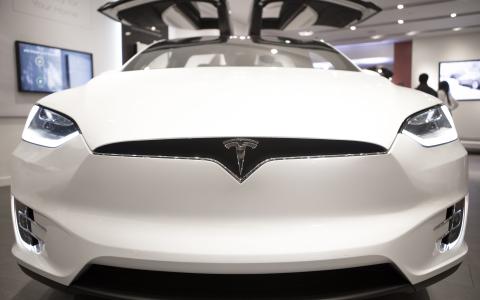
(Yahoo! Finance) - Tesla (TSLA) has made it clear that it’s willing to go the distance to reinstate CEO Elon Musk’s $56 billion pay package.
Just hours after Delaware’s top Chancery Court judge, Chancellor Kathaleen McCormick, struck down a June Tesla shareholder vote in favor of the deal, Tesla vowed to ask a higher court to overturn the decision.
"The court’s decision is wrong, and we’re going to appeal," Tesla said in a post on Musk’s social media platform, X.
The combination of McCormick’s decision and Tesla's response sets up a 2025 legal battle that could go all the way to the US Supreme Court — and could have implications for any big publicly traded company.
The novel question at the heart of the coming fight could remake the rules of corporate law: Can stockholders ever overrule a judge?
"This ruling, if not overturned, means that judges and plaintiffs’ lawyers run Delaware companies rather than their rightful owners — the shareholders," Tesla added on X.
Case Western Reserve University Law School corporate law professor Anat Alon-Beck said McCormick’s decision reinforces how tightly companies must adhere to Delaware procedure, even when dealing with a high-profile leader such as Musk, whose contributions to his company are undoubtedly significant.
Wedbush analyst Dan Ives called McCormick’s decision a "Twilight Zone legal move" that cut against the decision of most Tesla shareholders.
"We continue to believe Tesla and Musk will fight this tooth and nail all the way to the Supreme Court in Delaware and then potentially to the federal system as this remains a frustrating headache for Tesla, Musk, and its shareholders," Ives wrote in a note on Tuesday.
'Extensive ties'
Chancellor Kathaleen McCormick initially voided the pay pact in January because of what she called "extensive ties" between Musk and the people negotiating the pay package and a lack of public disclosure about Musk’s relationships with those who approved the deal.
She ruled that Musk, a minority owner of Tesla, held enough influence over the electric car company to count as its de facto controller, who must be held to a stricter level of legal scrutiny.
Tesla stockholders then approved the pay package a second time in June, and Tesla argued that the additional stamp of approval should be enough for McCormick to toss out her initial decision.
In her opinion issued Monday, McCormick described Tesla’s second shareholder vote as evidence that Tesla "created" after trial and said that it came too late and with too many additional deficiencies to support ratification.
Columbia Law School professor Dorothy Lund said Musk and Tesla could have avoided the intense scrutiny of this case by leaving the original compensation offer up to a special committee of independent Tesla board members.
"This pre-commitment requirement is part of what doomed Musk and Tesla here," Lund said.
A single independent director, Kathleen Wilson-Thompson, approved the second package that stockholders reapproved in June. However, McCormick did not address whether Wilson-Thompson's due diligence fulfilled Delaware's requirements.
If Tesla wants to propose a new pay plan to compensate Musk for his past performance, it will need to ensure that the process is at arm's length and that the deal offers a fair price — “a tall order given the numbers involved,” Lund said.
The Delaware Supreme Court did reverse a Chancery Court decision in April that applied the heightened standard used for transactions involving conflicted and controlling shareholders.
In the case, a shareholder derivative action brought against Match Group (MTCH), Delaware's top court ruled that the transactions could avoid the heightened standard so long as fully informed, disinterested stockholders vote to approve the matter and the matter is approved by a well-functioning special committee.
Accounting charges
One reason Tesla fought to reinstate the original accord, rather than fashion a new one, is the potential cost to replace it.
In its 2018 proxy statement, Tesla said it took a $2.3 billion accounting charge in connection with the package. Later, in a court filing in the litigation, Tesla said an equivalent deal would require it to take a charge exceeding $25 billion.
That impact to Tesla won't be known until the appeals process plays out.
"I think the compensation package, if they lose the appeal, is done," Lund said. At that point, she said, Tesla would have to decide whether to award a new package.
Harvard Law School professor Lucian Bebchuk wrote a blog post before the second shareholder vote in June calling Tesla's accounting claims into question.
Voting stockholders, he said, should take into account a material risk that even restoring the original grant could result in a "massive account charge" of $25 billion.
As the case moves to the higher court, Musk’s pay will remain in limbo.
At the time of the shareholder derivative lawsuit challenging the pay, Musk had not exercised any of the 303 million share options that it granted.
The stock options in the invalidated agreement would now be worth around $101 billion.
By Alexis Keenan - Senior Legal Reporter



